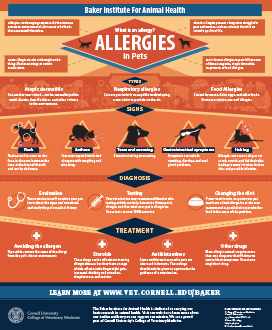How To Research Dog Daycare Online
How To Research Dog Daycare Online
Blog Article
Can Pet Dog Childcare Cause Disease?
Chances are that if your pet is on a regular basis subjected to other pets, even if they're appropriately vaccinated, they might get back with some kind of ailment. Inoculations, regular vet examinations, and good health practices can decrease danger factors for infection and condition.
Worried or nervous pet dogs can establish stomach troubles and various other wellness concerns that are conveniently spread out in between pets. Developing age constraints and behavior regulations can aid make certain that just healthy and balanced pets enter your center.
Distemper
Canine distemper is a significant and usually deadly infection that strikes a pet's respiratory system, digestion, skin and body immune systems. Young puppies are particularly vulnerable and can acquire the illness through direct contact with a contaminated pet or via the air-borne transmission of infection bits discharged throughout coughing, sneezing or taking a breath.
The incubation period for canine distemper is between 3 and 7 days. While puppies at day care may appear to capture parvo from an additional contaminated canine, it's unlikely because the incubation period is so brief.
While there is no treatment for canine distemper, encouraging treatment can assist canines recover. This includes liquids, anti-biotics and drugs to manage seizures. The Drake Center for Veterinary Care notes that signs and symptoms consist of drippy eyes and nose, diarrhea, vomiting, loss of appetite and neurological troubles such as twitching and shakes. Young puppies need a full inoculation collection and yearly boosters to protect them versus this condition, which is why credible dog day care centers call for current vaccinations.
Kennel Cough
Kennel Coughing (Dog Infectious Tracheobronchitis) is a highly transmittable top respiratory problem brought on by germs and viruses. It spreads out with airborne beads from a coughing or sneeze, direct contact, and sharing of infected items such as playthings or water bowls. It is native in places where several pet dogs are housed close together, such as kennels, canine parks, grooming beauty parlors and shows. Numerous injections are available to shield against the virus that trigger kennel cough, and correct health practices can aid stop infection.
The timeless sign is a dry, hacking coughing similar to that of a goose honk, and most pets recuperate with little intervention. Nonetheless, serious instances can cause pneumonia, and puppies or pets with pre-existing health problem are at greater danger for complications. To accelerate recovery, make use of a harness rather than a collar while your dog is recouping to avoid irritability to the windpipe. A humidifier may additionally assist to moisten the air and stop dry coughing.
Parvovirus
Parvovirus (CPV) is a significant illness in dogs. It resembles feline panleukopenia (feline distemper), but it's a lot more fatal and can spread out rapidly amongst dogs as a result of its incredibly resistant nature.
This virus strikes the digestive tract cellular lining of a canine, damaging it and triggering microorganisms to slough off right into the bloodstream. The damaged immune system and frustrating bacteria cause septic shock, which is typically deadly.
Thankfully, vet hospitals use effective treatment for parvovirus. These drugs are provided straight into an individual's bloodstream and targeted in the direction of the details strain of parvovirus. This therapy method is extremely reliable and helps re-train the immune system to combat off the infection. Pets with serious signs and symptoms are frequently hospitalized for a number of days for monitoring and intensive like ensure their survival. Young puppies, unvaccinated pets and canines with weak body immune systems are particularly vulnerable to parvovirus. This is specifically true for young puppies birthed to stray moms and sanctuary environments, where they are subjected to several other ill and at risk dogs.
Dog Flu
Canine influenza (CIV) is an infectious respiratory system disease that can be triggered by pet dogs sharing infected surfaces or direct contact with respiratory system secretions. CIV spreads easily in atmospheres where there are high varieties of dogs, such as dog parks, day cares, brushing boarding dogs near me centers and vet clinics.
Infected pet dogs shed the virus with aerosol breathing beads when coughing or sneezing, and may pollute things they come into contact with like cages, toys, food bowls, chains and the hands and apparel of people who manage them. Pets can also be "silent service providers" spreading the virus without showing any kind of symptoms themselves.
Symptoms of canine influenza consist of nose and eye discharge, cough, fever, anorexia nervosa, and weak point. The infection can progress to pneumonia, which can be deadly in some dogs. PCR viral testing is readily available for confirmation of infection. Ideally, examples (usually deep nasal or pharyngeal swabs) for PCR screening should be gathered within 4 days of the onset of medical indicators.